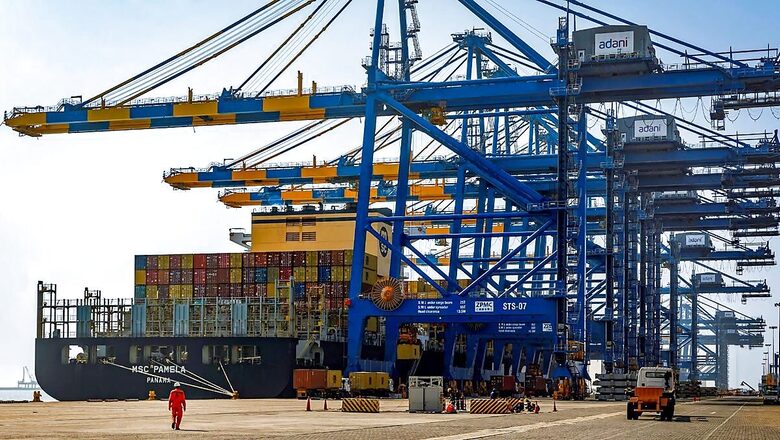
views
The Red Sea crisis has deepened further since November after the attacks by Yemen’s Houthi rebels on the international route, preventing shipping companies to carry on trade.
India, which uses the Red Sea route through the Suez Canal to trade with Europe, North America, North Africa and parts of West Asia, could see exports worth $64 billion, including plastic, rice and garments, get impacted in the Suez Canal crisis, according to a survey by the Federation of Indian Export Organisations (FIEO).
Although India has registered a 3.1% rise in January in outbound shipments, but for how long can it sustain growth in the ongoing crisis needs to be looked at.
What is Happening in the Red Sea?
Iran-backed Houthis rebels have been attacking commercial vessels in the Bal-el-Mandeb strait between the Arabian Peninsula and the Horn of Africa since November in response to Israel’s bombardment in Gaza.
The attacks escalated after the US used helicopters from its Navy warships to stop an attack by militants on a ship owned by Maersk, leading the Danish shipping line to pause all shipment, according to The Guardian.
How Important is the route?
The Suez Canal handles 12% of global trade, with half of the freight shipped through the canal is made up of containerised goods. The route is also an important passage for shipments of oil from the Persian Gulf to Europe and North America.
For India, trade through the Red Sea accounts for around 50% of India’s exports worth Rs 18 lakh crore and about 30% of imports amounting to Rs 17 lakh crore last fiscal, according to Crisil Ratings.
Impact on India
With around 35% of Basmati production is shipped to Europe, West Asia, North America and Africa via the Red Sea route, Indian exporters are feeling the pressure of high freight costs due to which the rice are now being sold in the domestic market.
Due to extended shipment timelines and high freight costs, high impact is also seen on fertilisers as India heavily depends on West Asia, especially Israel and Jordan, for it.
Medium impact is seen on crude oil, pharma and shipping, according to Crisil. India depends on Russia (37%), Iraq (21%) and Saudi Arabia (14%) for crude oil.
Crisil, however, said the Red Sea crisis will not affect the steel sector as 95% of the demand is met through domestic supply.
India’s tea sector also remained resilient with exports rising 6.92%, a three-month high, to $64.90 million in January 2024 despite the Red Sea crisis.
If the tensions continue in the Red Sea, shipping contracts, 80% of which are long term, can get affected.
New Trade Route to Israel Via Mundra Port
According to Israeli transport minister Miri Regev, a new route for goods to be sent to Israel from India bypassing the Red Sea could be used. Regev, who posted a video on X, was at the Mundra Port in Gujarat, and described the new route.
This route will allow goods to move from Mundra to ports in the UAE such as Dubai’s Jebel Ali Port and land through Saudi Arabia and Jordan to Israel. A major part of the land transport will be carried out by trucks, she explained.
In an earlier post on X, Regev said the land route will shorten the transport period by 12 days, and significantly reduce the current waiting time.

















Comments
0 comment